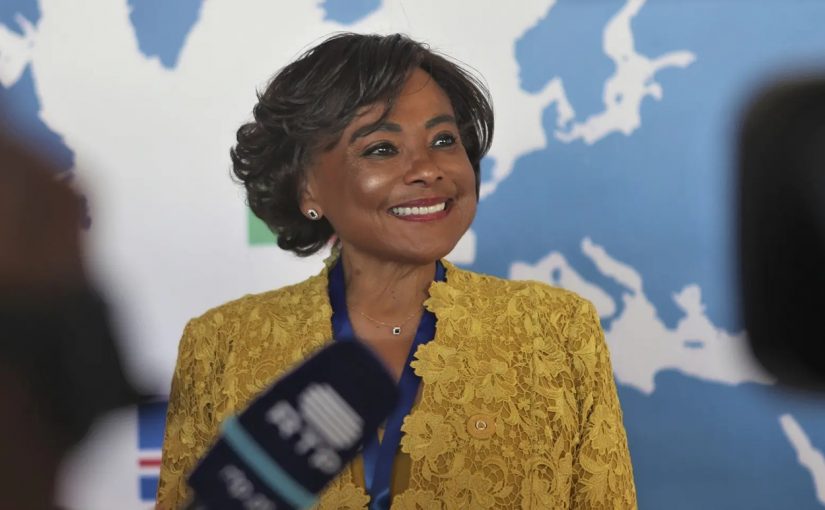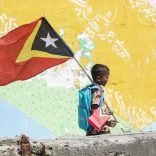Renters struggle to survive in Portugal housing crisis
CPLP: Angola is doing its part in ensuring mobility among member states

Photo: Luisa Nhantumbo/Lusa
The speaker of the Angolan parliament said on Monday that Angola is attentive and doing its part to ensure that the agreement on mobility between Portuguese-speaking countries will be implemented, expressing a commitment to overcome the “restrictions” on the movement of people and goods.
“Angola is doing its part, Angola is attentive, we are a country with 35 million inhabitants. After Brazil we are the second most populous country in the CPLP (…) we have internal, regional and international responsibilities. Angola is creating mechanisms to effectively comply with the agreements and discussions we have been having with our partners and fellow citizens of the member countries,” the speaker of the Angolan parliament, Carolina Cerqueira, told Lusa.
She was speaking on the sidelines of the 14th Parliamentary Assembly of the Community of Portuguese Language Countries (AP-CPLP) in Maputo, where she immediately praised the efforts of member countries to ensure the mobility of people and goods in the Portuguese-speaking world.
“We know that our countries have fought for this facility, for the exchange of goods, the free movement of people and goods, and we hope that this meeting in Maputo will produce sustainable proposals that respond to the policies of each of the member countries,” she added.
Carolina Cerqueira said that the CPLP nevertheless considers it important that “the principles and agreements between states are respected”, referring to the need to ensure control of the movement of contraband goods within the Portuguese-speaking world, indicating that upholding legal practices can “strengthen the order of each member country”.
“We are noticing certain measures that limit movement within the CPLP area and issues related to the movement of goods and products that smugglers use,” she said, calling for greater attention to the need to ensure control over the movement of illegal products and appealing for the need to preserve the interests of each member state.
The outgoing presidency of the AP-CPLP, led by Equatorial Guinea, had previously called for the implementation of the mobility agreement between Portuguese-speaking countries, recognising the current challenges.
“CPLP member states should promote free movement within the CPLP; currently, they facilitate mobility only for holders of diplomatic and official passports, and they encourage the effective implementation of the mobility agreement signed on 17 July 2021 in Angola,” said Teresa Efua Asangono, president of the AP-CPLP and president of the Senate of Equatorial Guinea.
The heads of state and government of the community signed the mobility agreement within the CPLP on 17 July 2021 in Luanda, and a few countries have already moved forward with its implementation.
“It facilitates smoother movement for students, cultural agents, businesspeople, and others. We recognise the difficulties these groups face when travelling between countries,” explained the president of the Senate of Equatorial Guinea, whose term as president of the AP-CPLP ends today and will pass to Mozambique on Tuesday.
Mozambique will take over the rotating presidency of the AP-CPLP at the 14th meeting, which organisers will hold at the Joaquim Chissano Conference Centre in Maputo, succeeding Equatorial Guinea for a two-year term focused on peace and inclusion.
Founded in 1996, the CPLP comprises nine countries – Angola, Brazil, Cabo Verde, Guinea-Bissau, Equatorial Guinea, Mozambique, Portugal, Sao Tome and Principe, and Timor-Leste.













Leave a Reply
Be the First to Comment!
You must be logged in to post a comment.
You must be logged in to post a comment.